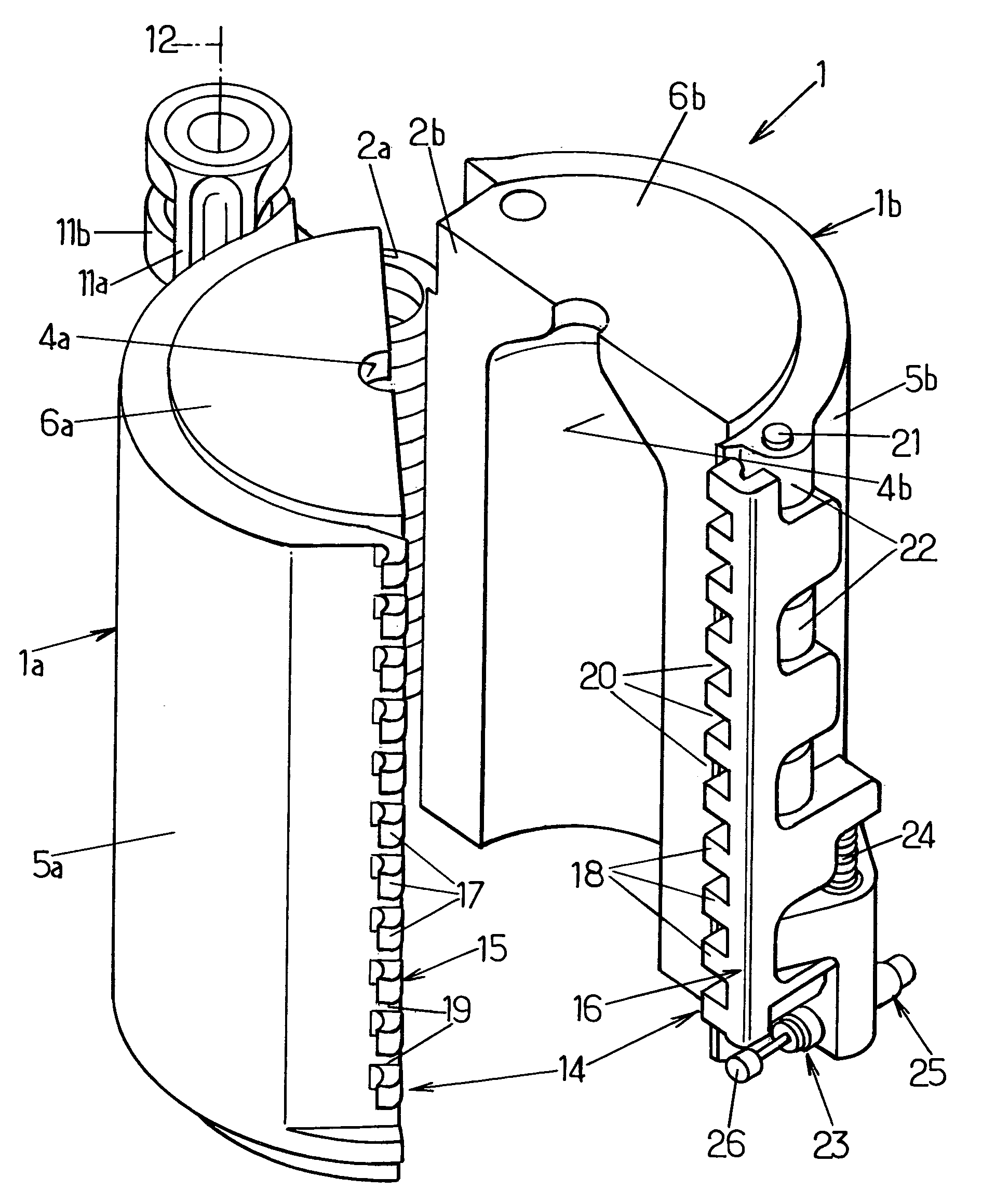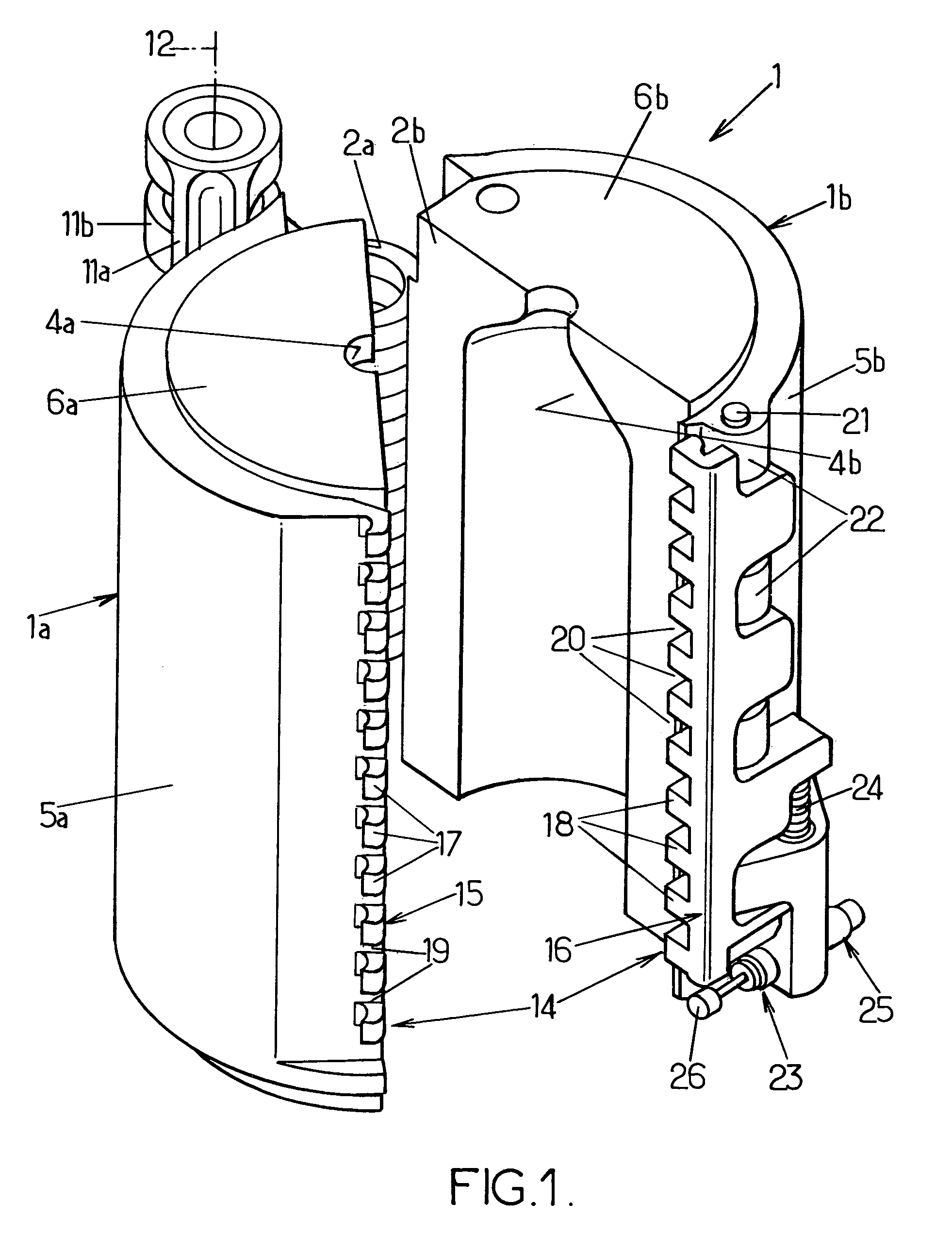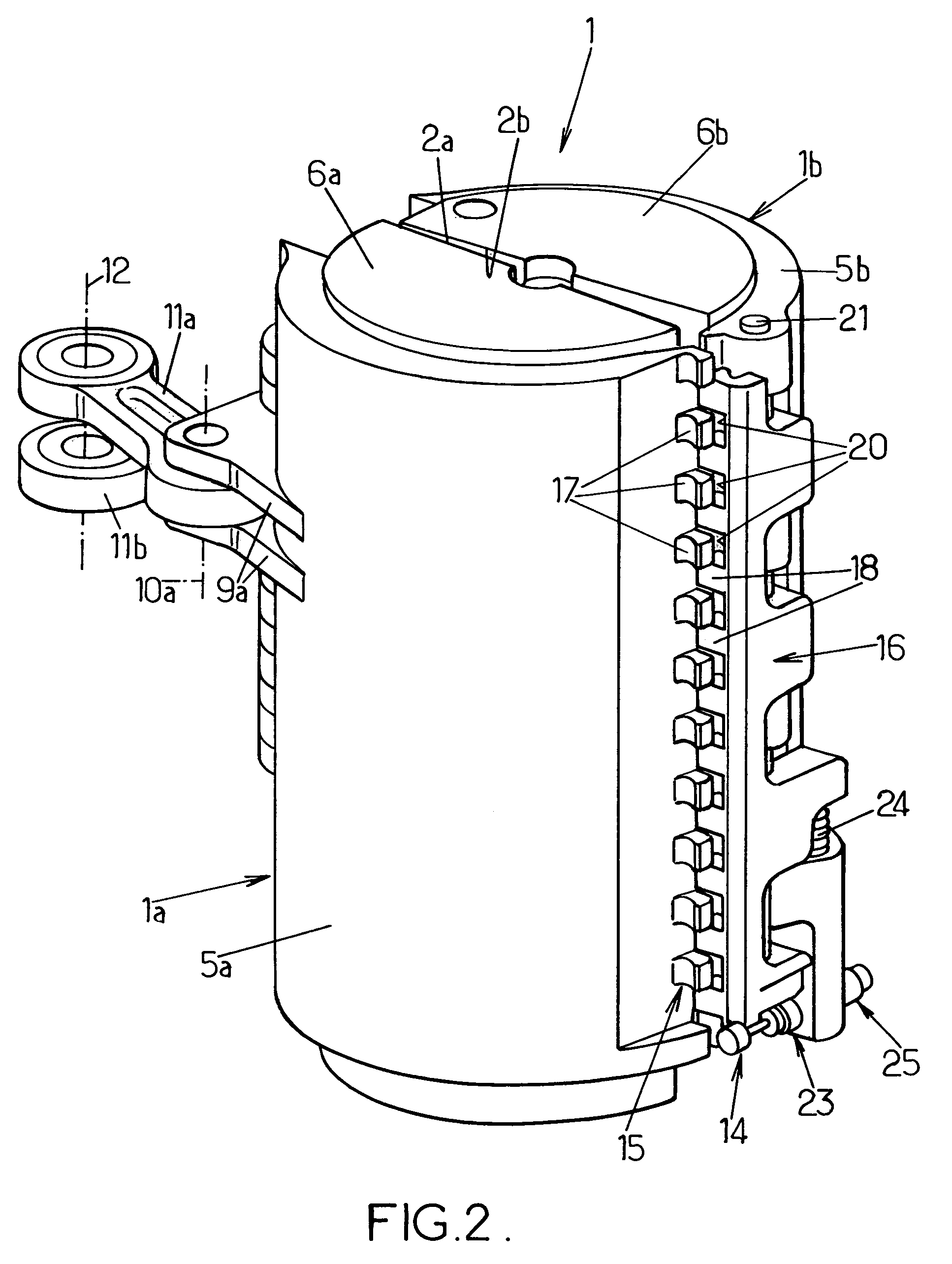Molding device for the production of containers in thermoplastic material
a thermoplastic material and molding device technology, applied in dough shaping, baking, food shaping, etc., can solve the problems of increasing the weight of the half-mold and also their cost, heavy and expensive, and the sliding and accommodating slots are not easy to be re-used, so as to reduce the weight of the mold. , the effect of reducing the number of times
- Summary
- Abstract
- Description
- Claims
- Application Information
AI Technical Summary
Benefits of technology
Problems solved by technology
Method used
Image
Examples
Embodiment Construction
[0033]The arrangements according to the invention are improvements made to molding devices for the blow-molding or stretch-blow-molding of containers, such as bottles, from heated thermoplastic (for example PET) preforms. Such a molding device comprises at least one mold comprising at least two half-molds (and possibly a third part that forms an axially movable mold bottom) which can be moved relative to one another between an open position in which they are parted from one another and a closed position in which they are pressed firmly against one another by collaborating respective faces defining a parting line, locking means being provided to lock the two half-molds in the closed position and prevent them from parting or gaping when the blowing fluid is introduced under very high pressure (for example typically of the order of 40×105 Pa).
[0034]Commonly, such molding devices may comprise a multiplicity of molds and may therefore be arranged in the form of a rotary device or carouse...
PUM
| Property | Measurement | Unit |
|---|---|---|
| blowing pressure | aaaaa | aaaaa |
| pressure | aaaaa | aaaaa |
| height | aaaaa | aaaaa |
Abstract
Description
Claims
Application Information
 Login to View More
Login to View More - R&D
- Intellectual Property
- Life Sciences
- Materials
- Tech Scout
- Unparalleled Data Quality
- Higher Quality Content
- 60% Fewer Hallucinations
Browse by: Latest US Patents, China's latest patents, Technical Efficacy Thesaurus, Application Domain, Technology Topic, Popular Technical Reports.
© 2025 PatSnap. All rights reserved.Legal|Privacy policy|Modern Slavery Act Transparency Statement|Sitemap|About US| Contact US: help@patsnap.com



